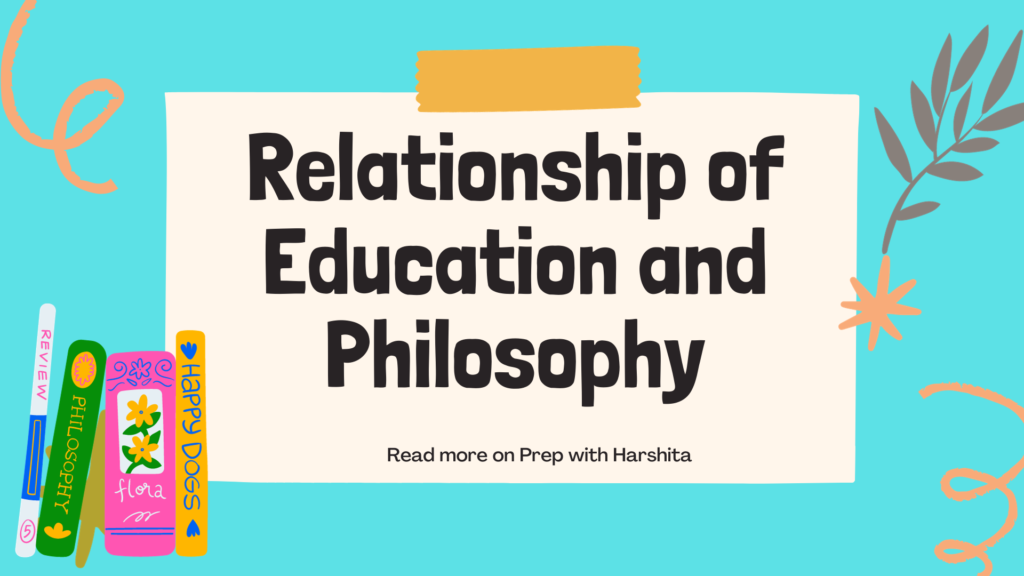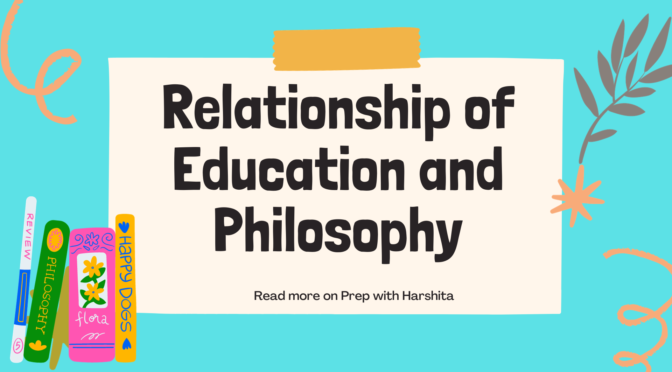The relationship between philosophy and education is a complex and significant one. Philosophy and education are interconnected disciplines that often influence and shape each other.
Relationship between Philosophy and Education:
- Foundational Principles: Philosophy provides the foundational principles upon which educational theories and practices are built. It helps educators and policymakers to define the purpose of education, the nature of knowledge, and the goals of the educational process.
- Epistemology and Pedagogy: Epistemology, a branch of philosophy, explores the nature of knowledge and how it is acquired. This directly informs educational practices and pedagogy. It influences how teachers create learning experiences and helps in the acquisition of knowledge by students.
- Ethics and Morality: Philosophical ethics plays a crucial role in shaping the moral and ethical aspects of education. It guides educators in making decisions about what values and virtues should be promoted in the educational environment, influencing both curriculum development and classroom management.
- Metaphysics and Educational Reality: Metaphysical considerations, such as the nature of reality and the self, impact how educators perceive the world and the learners within it. These perspectives influence the design of educational experiences that align with certain metaphysical beliefs.
- Curriculum Development: Philosophy helps in the development of the educational curriculum. It addresses questions about what should be taught, why it should be taught, and how it should be taught. Different educational philosophies provide varied perspectives on curriculum design.
- Philosophical Foundations of Education: Educational philosophy is a distinct field that explores the philosophical underpinnings of education. Scholars in this field study the nature of education, the role of teachers and students, and the purpose of schooling.
- Critical Thinking and Philosophy: Philosophy encourages critical thinking skills, which are essential in education. The process of philosophical inquiry involves questioning assumptions, analyzing arguments, and skills that are valuable for both educators and students.
- Social and Political Philosophy: Issues related to social justice, equality, and the role of education in society are often addressed in social and political philosophy. These discussions have a direct impact on educational policies, access to education, and the distribution of resources within educational systems.
Also Visit : Prep with Harshita

Also Visit : Relevance of Ethics and Values

